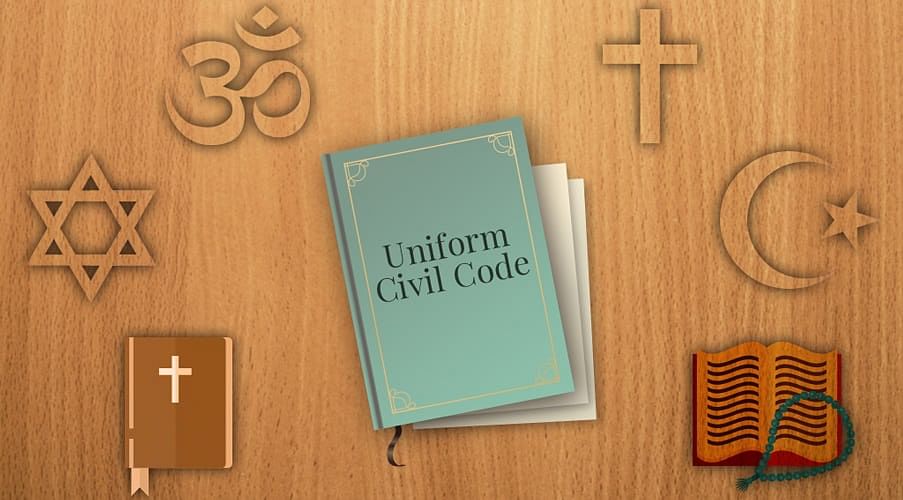Uniform Civil Code (hereinafter referred to as ‘UCC’) is based on the concept of ‘one country one rule’. In simple terms, it refers to a single law applicable to all the citizens of India in their personal matters. Currently there are different personal laws for Hindus and Muslims and these personal laws cover the matters related to property, marriage and divorce, inheritance and succession. The idea of Uniform Civil Code has been enshrined in Article 44 of the Constitution which provides that ‘State shall endeavor to secure for all citizens a Uniform Civil Code throughout the territory of India.’ Since it falls under DPSP hence its implementation is a duty of the state but it is merely a goal towards which the nation should strive and it is not a fundamental right which can be claimed in the court of law.
There were two objections put forward in Constituent Assembly against applying UCC throughout India. Firstly, that it would infringe the fundamental right to freedom of religion (Article 25) and secondly that, it would be a tyranny to the minority. First objection however, is misconceived as Art. 25(2) specifically saves secular activities associated with religious practices from guarantee of religious freedom given in Art. 25(1) (John Vallamattom v. Union of India). For the second objection, Sri K.M. Munshi, member of drafting committee said in the Constituent Assembly that nowhere in advanced Muslim countries the personal law of any minority can prevent the enactment of a civil code. So, “when you want to consolidate a community, you have to take into consideration the benefits which may accrue to the whole community and not to the customs of a part of it.”
In 1985, in the Shah Bano Case, SC directed the Parliament to frame UCC but currently there is no UCC in the country. Similar suggestion was given in 1995 in Sarla Mudgal Case where Justice Kuldip Singh reiterated the need for Parliament to frame a Uniform Civil Code, which would help the cause of national integration by removing ideological contradictions. However, the debate whether UCC shall be there or not is still going on. The arguments given in favor of UCC are that it will pave way for national integration and secularism and will promote gender equality and welfare of women. It is also believed that it will simplify cumbersome legal matters governed by personal laws as in absence of common laws, judges interpret personal laws according to their prejudice and opinions. Thus, it is expected to improve the loopholes in the personal law system and with common criminal law in the country, there can also be a common civil law. However, a large section of people have opinions against UCC that it is not suitable for a country with multicultural society with many religions. It is looked upon by Muslims and other minorities as threat to their identity because the code in itself seems to be favouring the majority Hindu population therefore poses as a threat to communal harmony. Also, Constitution guarantees minorities the right to follow their own religion, culture and customs (Article 29 and 30) but UCC may be violative of these provisions.
Till now in our country, Goa is the only state which has implemented UCC. UCC in Goa is inspired by Portugese Civil Code, 1876. It governs all the individuals under the principle : Freedom and Dignity of Individual and provides for monogamy of every person and equality and equal share in succession. However, 21st Law Commission of India (2016) under the Chairmanship of Justice Balbir Singh Chauhan said that UCC is neither necessary nor desirable at this stage.
In my opinion, UCC should be brought gradually and not forcibly. The implementation of UCC should not disturb the fabric of diversity in Indian society and the minorities must feel safe and be assured that their identity as a community shall not be in threat. Any change to come should come from within the society and not to be imposed by the state. It is only then that the democracy shall be maintained in its true sense.
Komal@Samacharline

